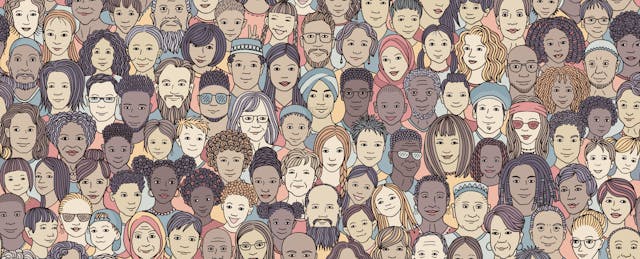A few years ago, a young woman named Natalia graduated from one of our Girls Who Code summer programs. Natalia, like many of our alumni, is an undocumented immigrant with DACA status. After learning to code, she went on to major in computer science in college, and she is now putting her technical skills to work on a film about immigration laws.
Soon, however, our programs may not reach young women like Natalia.
In the coming days, the Supreme Court of the United States is expected to rule on a big change to the upcoming 2020 census—the Trump Administration’s proposed addition of an overtly racist question about U.S. citizenship.
Experts say that, if included, this question—which would ask, “Is this person a citizen of the United States?”— could result in an undercount of as many as 6 million Latinx people living in the U.S. (who may not respond to the survey because they fear, with good reason, persecution by the Trump Administration).
This sort of miscount would dilute political representation of a significant minority community—that much is widely understood. But it would also roll back the efforts of countless nonprofit and philanthropic organizations that are dedicated to fighting racism and sexism and discrimination.
Just last August, more than 300 diverse foundation leaders from across the country came together to implore the Trump Administration and its grantees to rely on accurate data to help them “serve communities, especially those that are hard-to-count, through their work on various issues including poverty, health care, criminal justice reform, racial equity, education equity, and infrastructure improvement.”
For these organizations, and for Girls Who Code, accurate census data helps determine where to focus outreach, implement programs and send resources. In our case, distorted census data would be deeply detrimental to our efforts and have dire consequences for diversity in tech all along the pipeline.
Today, Latina women make up only 1.6 percent of students graduating with degrees in computer science, despite making up 14 percent of all students graduating with bachelor degrees. They make up only 1.4 percent of the computing workforce, despite making up about 8 percent of the overall workforce. And they represent exactly zero of the CEOs of Fortune 500 tech companies.
This is the reason we committed—on the day we started Girls Who Code in 2012—to making sure that half the girls we serve every year come from historically underrepresented groups in tech, including those from Latinx communities. And it’s the reason that it’s so crucial for us to have accurate data so that we may continue serving them.
At our organization and many other philanthropic ventures serving minority groups, we rely on analyses of census data to shape a more nuanced approach to recruiting historically underrepresented groups.
With accurate data, we can continue to focus our work in places we know Latinx people live and work, where there might be girls without access to computer science courses or who don’t see a future for themselves in the field because they lack role models who look like them.
With accurate data, we can continue to build on the tens of thousands of Latina girls we’ve already reached in community centers, libraries and places of worship across the country—girls who we know have gone on to major in computer science at a rate 16 times the national average.
With accurate data, we can continue to reach more remarkable young Latina women like Natalia, to expand economic opportunities for themselves, their communities and their—our—country.
Every person in this country deserves to count. Every person deserves to have their voice represented in the halls of Congress and to have access to the resources they need from the government and nonprofits like ours to succeed.
In the next few days, the Supreme Court is expected to make a major decision relating to the 2020 census. By the time the subsequent census goes out in 2030, we will either have done irreparable damage to our country, or we will have closed the gender gap in tech and created a more diverse workforce and a more equitable world.
Our work, and the work of countless other organizations, depends on the case before the Court. So, too, does the future of our girls, and the wellbeing of our nation.


